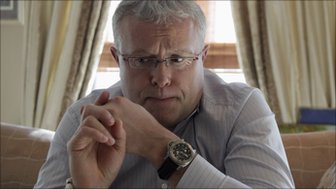Religion may become extinct in nine nations, study says
 In the UK, Wales has the highest proportion of religiously "non-affiliated"
In the UK, Wales has the highest proportion of religiously "non-affiliated"
A study using census data from nine countries shows that religion there is set for extinction, say researchers.
The study found a steady rise in those claiming no religious affiliation.
The team's mathematical model attempts to account for the interplay between the number of religious respondents and the social motives behind being one.
The result, reported at the American Physical Society meeting in Dallas, US, indicates that religion will all but die out altogether in those countries.
The team took census data stretching back as far as a century from countries in which the census queried religious affiliation: Australia, Austria, Canada, the Czech Republic, Finland, Ireland, the Netherlands, New Zealand and Switzerland.
Nonlinear dynamics is invoked to explain a wide range of physical phenomena in which a number of factors play a part.
One of the team, Daniel Abrams of Northwestern University, put forth a similar model in 2003 to put a numerical basis behind the decline of lesser-spoken world languages.
At its heart is the competition between speakers of different languages, and the "utility" of speaking one instead of another.
"The idea is pretty simple," said Richard Wiener of the Research Corporation for Science Advancement, and the University of Arizona.
"It posits that social groups that have more members are going to be more attractive to join, and it posits that social groups have a social status or utility.
"For example in languages, there can be greater utility or status in speaking Spanish instead of [the dying language] Quechuan in Peru, and similarly there's some kind of status or utility in being a member of a religion or not."
 Some of the census data the team used date from the 19th century
Some of the census data the team used date from the 19th century
Dr Wiener continued: "In a large number of modern secular democracies, there's been a trend that folk are identifying themselves as non-affiliated with religion; in the Netherlands the number was 40%, and the highest we saw was in the Czech Republic, where the number was 60%."
The team then applied their nonlinear dynamics model, adjusting parameters for the relative social and utilitarian merits of membership of the "non-religious" category.
They found, in a study published online, that those parameters were similar across all the countries studied, suggesting that similar behaviour drives the mathematics in all of them.
And in all the countries, the indications were that religion was headed toward extinction.
However, Dr Wiener told the conference that the team was working to update the model with a "network structure" more representative of the one at work in the world.
"Obviously we don't really believe this is the network structure of a modern society, where each person is influenced equally by all the other people in society," he said.
However, he told BBC News that he thought it was "a suggestive result".
"It's interesting that a fairly simple model captures the data, and if those simple ideas are correct, it suggests where this might be going.
"Obviously much more complicated things are going on with any one individual, but maybe a lot of that averages out."


 Tests shed light on life origins
Tests shed light on life origins US crew rescued after Libya crash
US crew rescued after Libya crash Obama's war tent
Obama's war tent Baptism by ice
Baptism by ice In pictures
In pictures Knut's story
Knut's story Invisible hazard
Invisible hazard HARDtalk
HARDtalk
Just Now
This comment is awaiting moderation. Explain.
Link to this
3 Minutes Ago
This comment is awaiting moderation. Explain.
Link to this
4 Minutes Ago
This comment is awaiting moderation. Explain.
Link to this
5 Minutes Ago
This comment is awaiting moderation. Explain.
Link to this
7 Minutes Ago
This comment is awaiting moderation. Explain.
Link to this
Comments 5 of 180